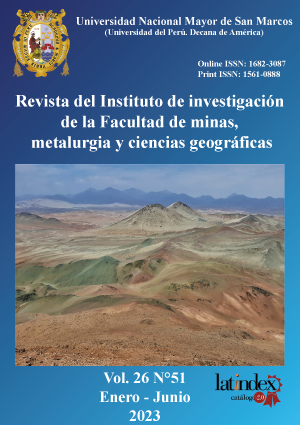Social Responsibility Management Tools in South America
DOI:
https://doi.org/10.15381/iigeo.v26i51.24473Keywords:
Social responsibility, management tools, South America, Global Compact, ISO Guide, Global Reporting InitiativeAbstract
Social responsibility is an issue that has been gaining importance over the years, but despite this, in many South American countries, this issue is still unknown, which implies an incipient application at a social, environmental, community or government level. Regarding management tools, many of these countries are achieving that, in recent years, a large part of their companies implement them. To meet the objectives of this work, bibliographic information was reviewed, taking references from the application of these management tools management in countries such as Peru, Ecuador, Bolivia and Chile. A comparison of these countries was made and see their evolution. In the case of Peru, a mixed survey was carried out using the Likert scale and open questions, aimed at companies from different sectors. The results show that this issue is not yet very stable in the companies of these countries, but ways to establish it are being sought. but ways are being sought to establish them through institutions, universities and using social responsibility tools.
Downloads
Published
Issue
Section
License
Copyright (c) 2023 Daisy Del Aguila, Freddy Córdova, Cristopher Díaz, Carolina Sanchez, Tomy Solís, Juan Zúñiga, Jesús Alberto Torres Guerra

This work is licensed under a Creative Commons Attribution 4.0 International License.
AUTHORS RETAIN THEIR RIGHTS:
a. Authors retain their trade mark rights and patent, and also on any process or procedure described in the article.
b. Authors retain their right to share, copy, distribute, perform and publicly communicate their article (eg, to place their article in an institutional repository or publish it in a book), with an acknowledgment of its initial publication in the Rev. Inst. investig. Fac. minas metal cienc. geogr.
c. Authors retain theirs right to make a subsequent publication of their work, to use the article or any part thereof (eg a compilation of his papers, lecture notes, thesis, or a book), always indicating the source of publication (the originator of the work, journal, volume, number and date).






